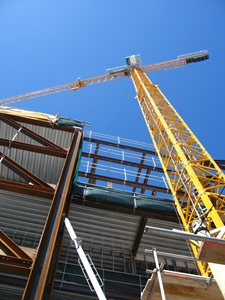While this reflects the values that Queenslanders have in their environment, it also presents a challenge to local councils and the state government to provide infrastructure that can support this lifestyle.
One city where this is being taken seriously in Townsville, with a large chunk of the city’s waterfront set to be upgraded as a priority development zone. The area consists of 97.2 hectares, located on the fringes of Townsville’s CBD, across both sides of Ross Creek.
As well as identifying new parcels of land that can be redeveloped under this plan, the priority zone also allows for construction projects in the area to be fast-tracked through the planning stage. This will enable earlier starts on major projects, bringing forward employment opportunities that will be created by this new work.
Townsville isn’t the first Queensland city to see a priority development area declared in its CBD. Parts of the Gold Coast have also received this new status in recent months, with large parts of the business district scheduled for redevelopment.
Deputy premier Jeff Seeney pointed to the value that the streamlined process would bring to this development.
“This Priority Development Area will lead to more efficient planning and approval decisions, faster construction starts, and a stronger Townsville economy,” said Mr Seeney.
“Council will have planning and development assessment responsibility for the majority of the site, but the State Government will retain responsibility for the strategic port land and will work with the Port of Townsville.”
The goal of this redevelopment is to increase the number of people living in and around Townsville’s CBD. By 2030, an estimated 30,000 more people will be living in the city and surrounding areas, thanks to these new projects.
The range of projects expected as part of this priority development area will also offer new opportunities for locals. The redevelopment plan covers construction projects like a new boardwalk and an entertaining and dining strip along the river.
For those seeking a traineeship or apprenticeship in Queensland, these new projects represent a chance for future employment. On top of the skills needed to construct this infrastructure, workers will also be needed with hospitality training in order to staff new developments.
By Leanne de Toerkenczy, Public Relations Coordinator
